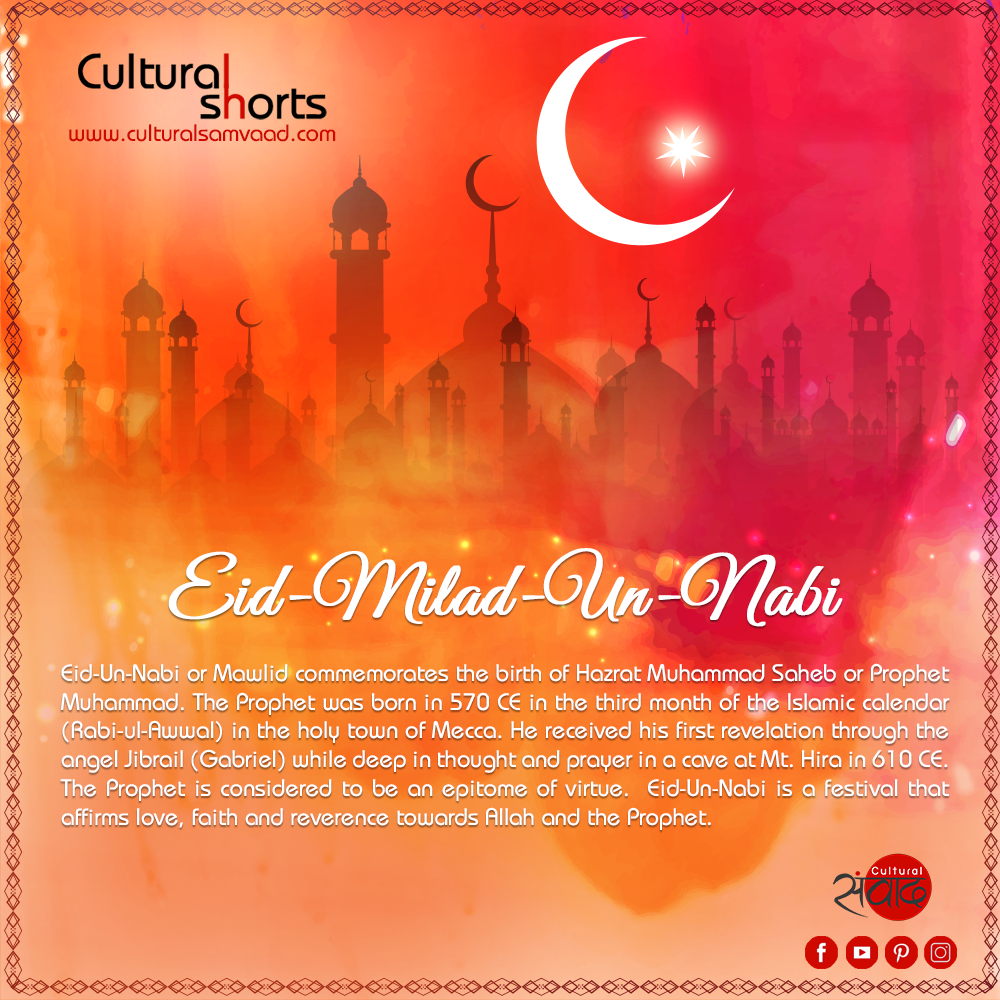
Join Cultural Samvaad’s WhatsApp Community
‘There is no god, but God and Muhammad is His Prophet’.
Eid-Milad-un-Nabi or Mawlid commemorates the birth of Hazrat Muhammad Saheb or Prophet Muhammad. He is regarded as the last Nabi (Prophet) in Islam and is also referred to as the Rasul Allah (the Messenger of God).
The Prophet was born in 570 CE in the third month of the Islamic calendar (Rabi-ul-Awwal) in the holy town of Mecca. At the age of 40 in 610 CE,he received his first revelation through the angel Jibrail (Gabriel) while deep in thought and prayer in a cave at Mt. Hira .
One of the cornerstones of his teachings is considered to be the assertion that there is One, Indivisible God who is the Good Creator. Surah 112 (Al Ikhlas or the Purity of Faith) of the Holy Quran states:
Say: He is Allah, the one and only;
Allah, the eternal, absolute;
He sires no offspring, nor is he anyone’s offspring,
And there is none like him.
The Prophet is considered to be an epitome of virtue – humility, magnanimity, nobility, sincerity and truthfulness were the hallmarks of his character. He taught all to greet each other by saying —asalaamu alaykum (may peace be upon you) and lived a simple life. The ‘Farewell Sermon’ or his Last Sermon has been translated by various scholars and is said to contain the essence of his teachings.
Eid-Milad-un-Nabi is a festival that affirms love, faith and reverence towards Allah and the Prophet. However, it is marked differently by Shias and Sunnis. Sunnis celebrate it as their beloved Prophet’s birthday. The Shias believe that this was the day when Prophet Mohammad appointed Ali as his successor. Mosques, streets and houses are decorated and lit up. Processions, sermons and songs reminisce the life and conduct and teachings of the Prophet and alms are distributed to the poor. It is a day to meditate upon his message of love for all creation and for all humankind and to emulate the righteous path of compassion and peace that he advocated.
Eid-e-Milad-un-Nabi Greetings
References:
- https://www.britannica.com/biography/Muhammad/The-ethical-and-spiritual-character-of-Muhammad
- Masih Y. (1990),A Comparative Study of Religions, Delhi: MLBD.
- http://www.pbs.org/muhammad/timeline_html.shtml
Acknowledgements:
The Cultural Samvaad team would like to thank Ms. Ayesha Syed for her inputs to this note.


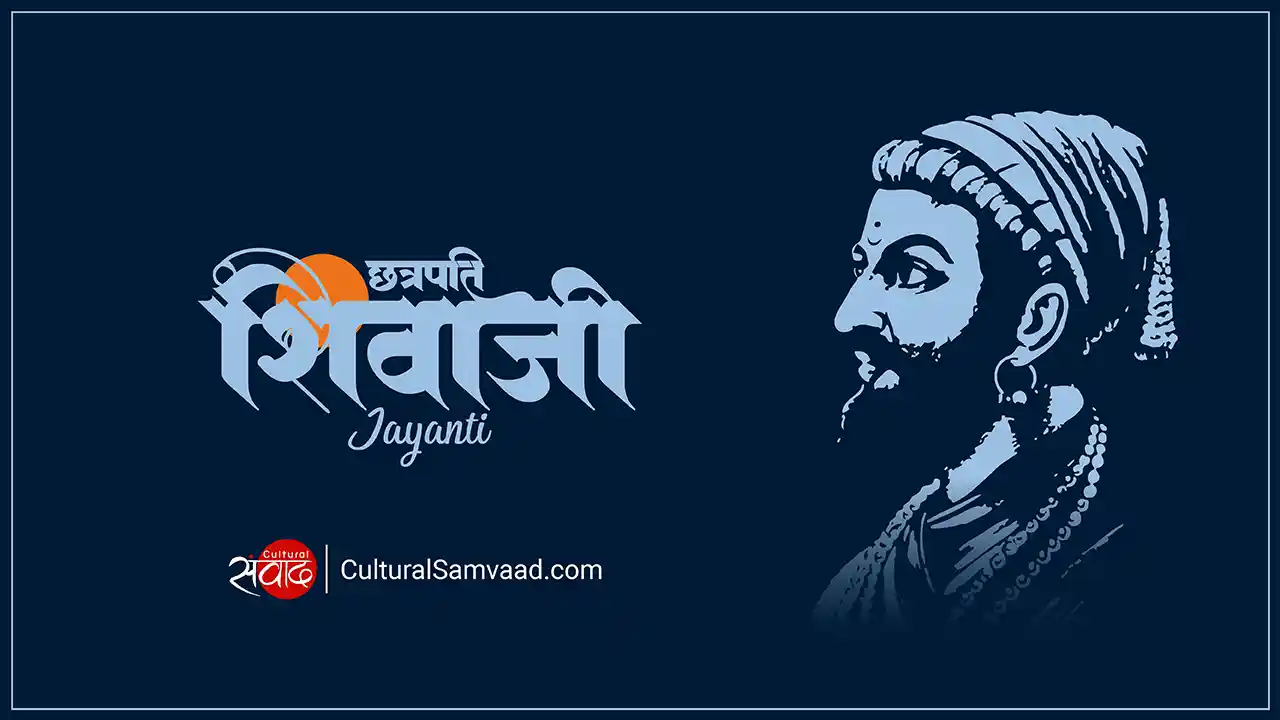
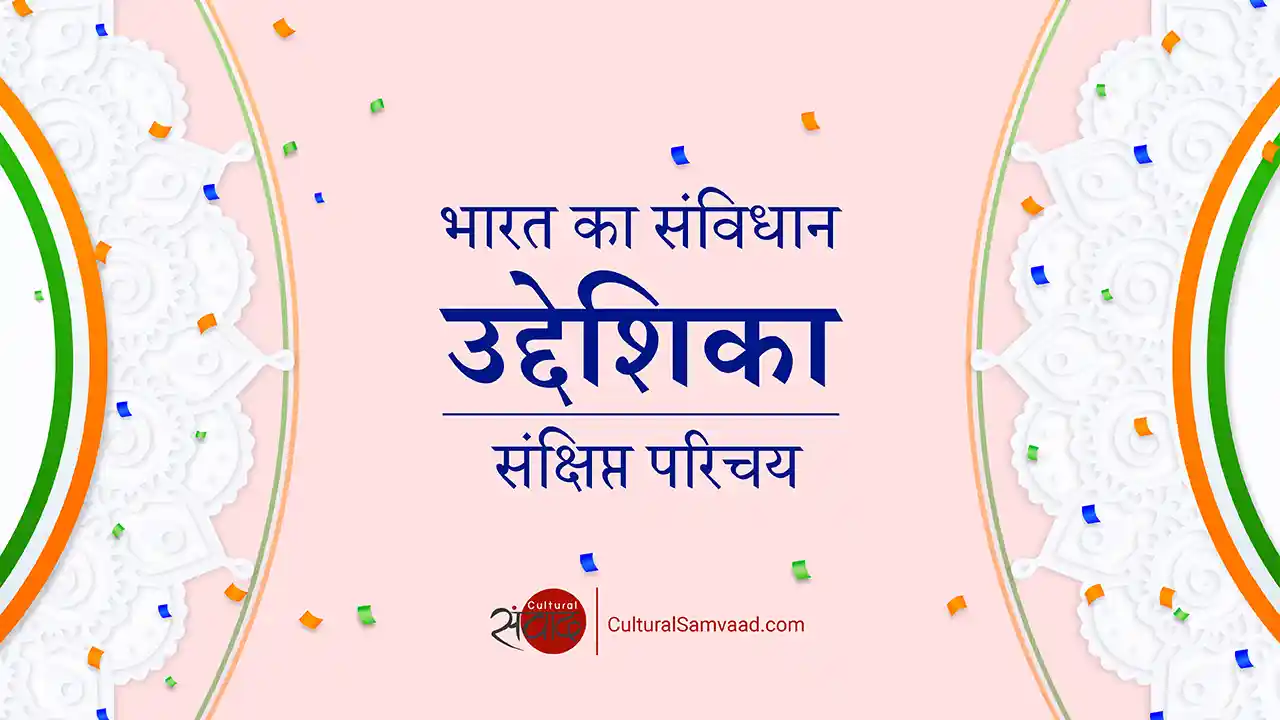
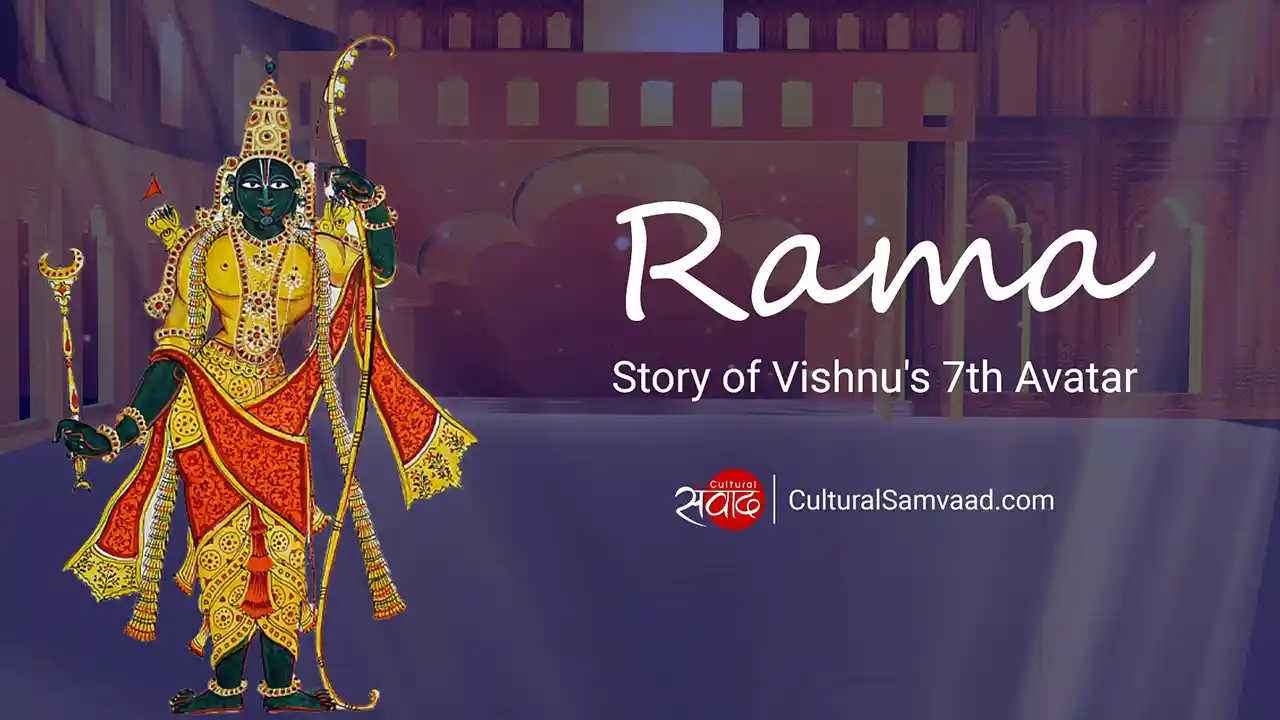
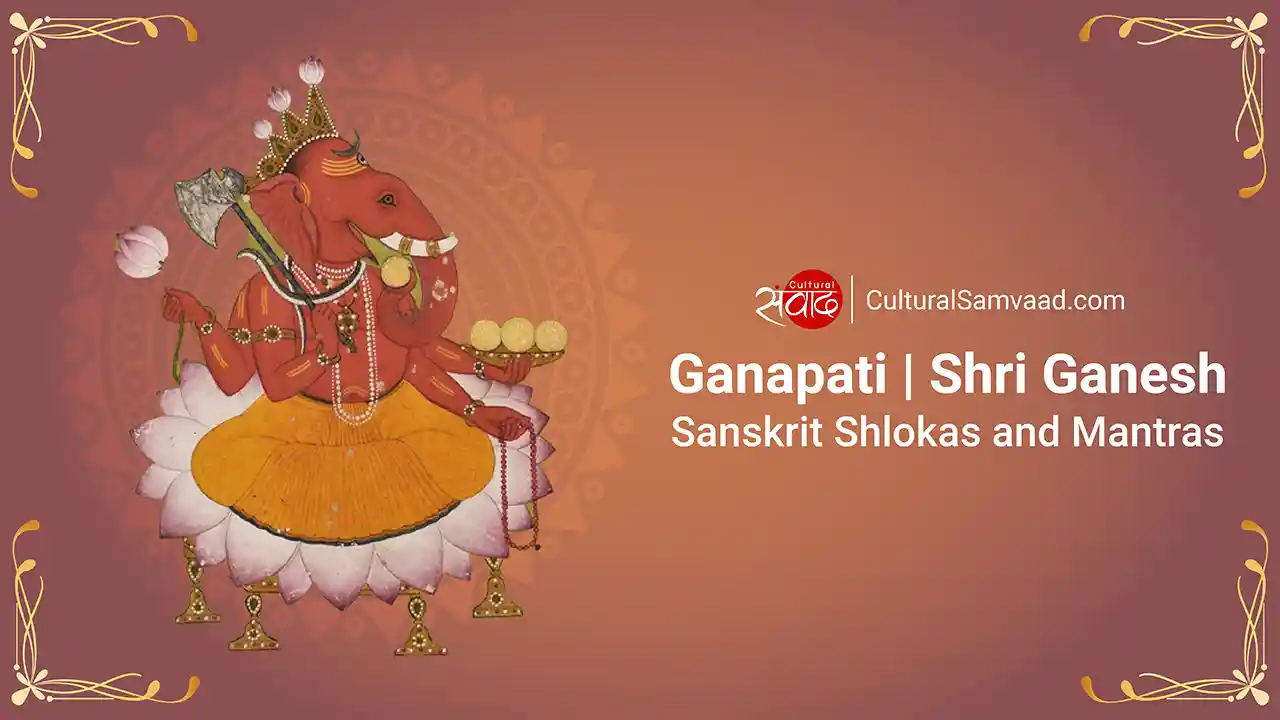
Add comment